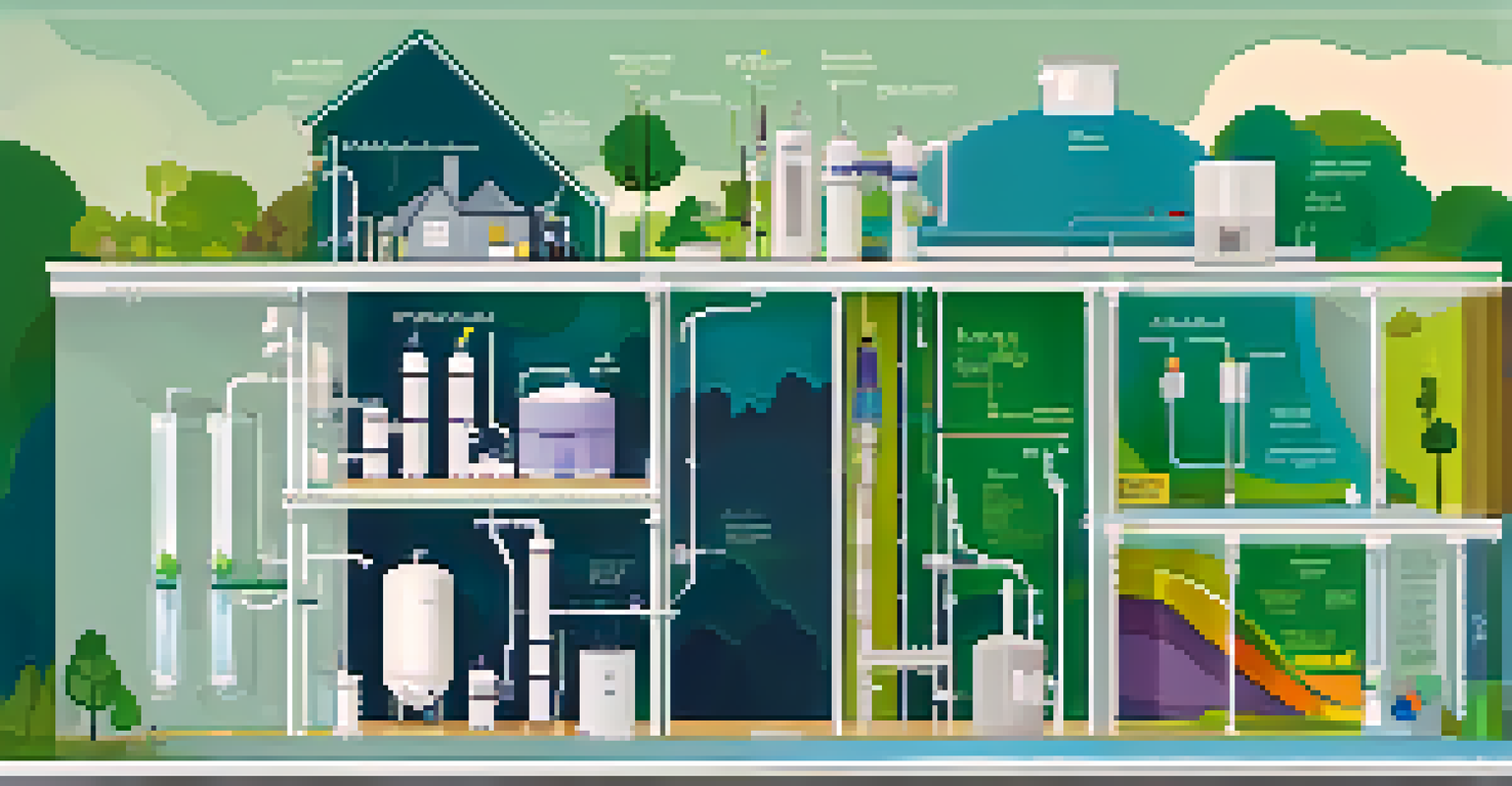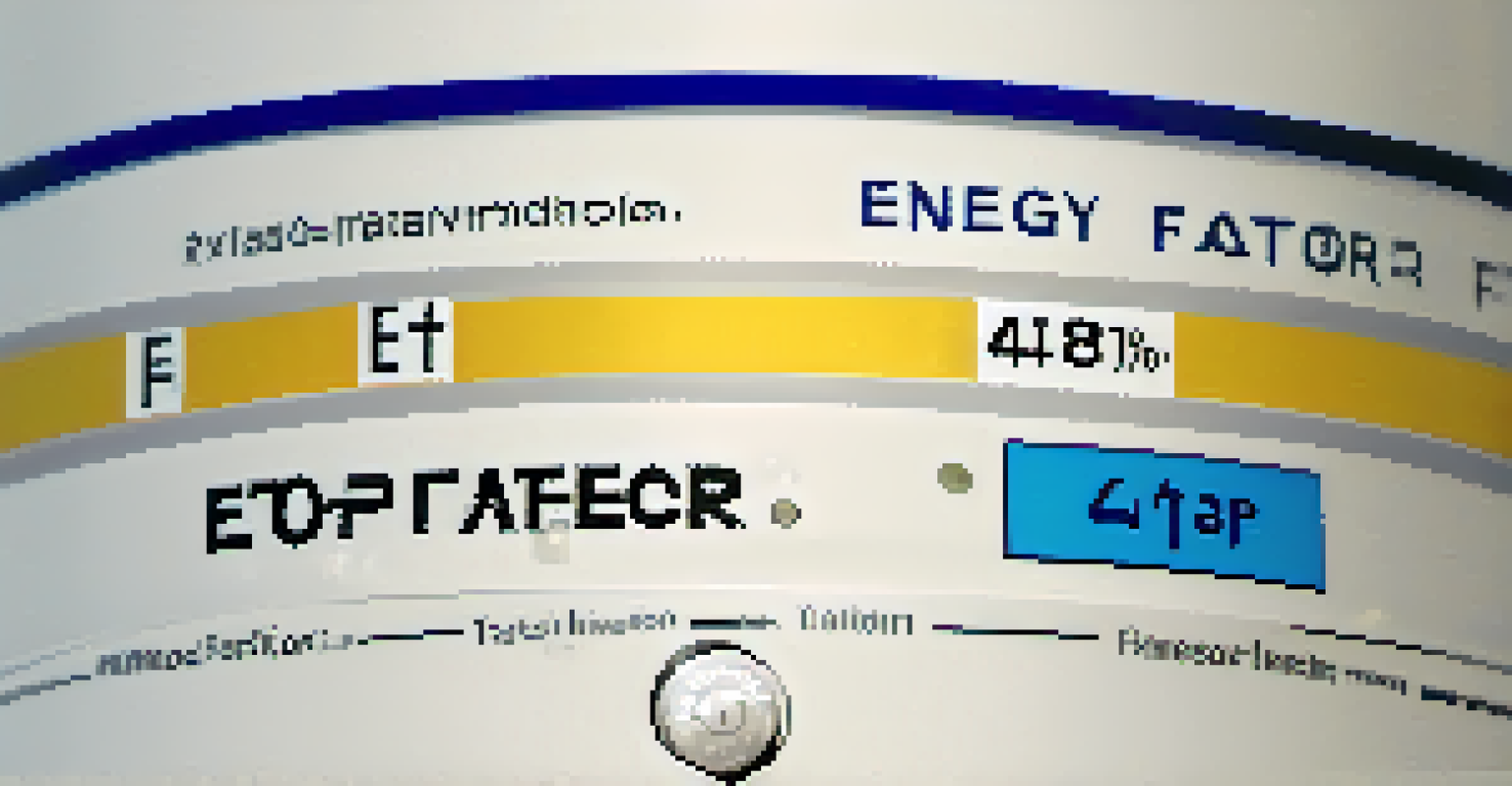Upgrading to a High-Efficiency Water Heater: Is It Worth It?

Understanding High-Efficiency Water Heaters
High-efficiency water heaters are designed to use less energy while providing the same amount of hot water as traditional models. These systems often incorporate advanced technology, such as heat pumps or condensing units, to maximize energy use. The result? They can significantly lower your utility bills and reduce your carbon footprint.
Energy efficiency is not just a trend; it's a way of life that we all need to adopt for a sustainable future.
For instance, while a standard electric water heater might consume a large amount of energy to heat water, a high-efficiency model can achieve the same output with less energy. This means that not only are you saving money, but you're also being kinder to the environment. It’s a win-win situation!
Understanding how these systems work is key to appreciating their value. So, if you're considering an upgrade, it's essential to familiarize yourself with the technology behind these innovative heaters.
The Financial Impact of Upgrading
One of the most pressing questions homeowners have is whether the investment in a high-efficiency water heater will pay off. Initially, these units may come with a higher price tag, but they can lead to substantial savings over time. In fact, many homeowners report a noticeable decrease in their monthly energy bills after making the switch.

Consider this: if your current water heater costs you around $600 a year in energy, and a high-efficiency model can cut that cost by 30%, you're looking at a savings of $180 each year. Over the lifespan of the heater, which could be 10 to 15 years, those savings really add up.
Energy Savings with Efficiency
High-efficiency water heaters can significantly lower utility bills by using less energy while providing the same amount of hot water.
Moreover, many utility companies offer rebates and incentives for upgrading to more efficient systems, which helps offset the initial costs. It’s wise to research any available programs in your area to maximize your savings.
Environmental Benefits of High-Efficiency Models
Upgrading to a high-efficiency water heater isn't just good for your wallet; it’s also beneficial for the planet. These units typically consume less energy, which means less reliance on fossil fuels and a reduction in greenhouse gas emissions. By making this upgrade, you're taking a step toward a more sustainable lifestyle.
The greatest threat to our planet is the belief that someone else will save it.
For example, reducing your energy consumption can lead to a significant decrease in your household's overall carbon footprint. This is especially relevant as climate change becomes an increasingly urgent issue. Every small change counts, and switching to a high-efficiency water heater is a simple yet impactful way to contribute.
Additionally, many models are built with environmentally friendly materials, further enhancing their eco-credentials. So, if you're passionate about the environment, this upgrade aligns well with your values.
Comparing Energy Efficiency Ratings
Energy efficiency is often measured by the Energy Factor (EF) rating, which indicates how efficiently a water heater converts energy into hot water. Higher EF ratings mean more efficiency, and high-efficiency water heaters generally have ratings of 0.90 or above. Understanding these ratings can help you make a more informed decision.
When shopping for a new water heater, it's vital to compare the EF ratings of various models. Most retailers will provide this information, and it can be a key factor in your selection process. The higher the EF rating, the more savings you can expect on your energy bills.
Environmental Impact Matters
Upgrading to a high-efficiency model helps reduce greenhouse gas emissions, contributing to a more sustainable lifestyle.
Furthermore, you should also consider the recovery rate, which refers to how quickly a water heater can heat up a new supply of water. Balancing both EF ratings and recovery rates will help ensure you choose a model that meets your household's needs efficiently.
Installation Considerations for New Heaters
Upgrading to a high-efficiency water heater isn't just about the unit itself; installation plays a crucial role in its performance. Proper installation ensures that the system operates at peak efficiency, so it’s vital to hire a qualified professional. They can assess your home’s needs and make recommendations for the best setup.
Moreover, different types of high-efficiency water heaters may require specific installations. For instance, heat pump water heaters need adequate space for air circulation, while condensing units might require venting considerations. Understanding these requirements beforehand can prevent future headaches.
It's also important to note that some older homes may need additional upgrades, such as electrical or plumbing adjustments, to accommodate a new system. Budgeting for these potential changes is a wise move to ensure a smooth transition.
Potential Drawbacks of Upgrading
While there are numerous benefits to upgrading, it’s essential to consider potential drawbacks as well. One common concern is the initial cost, as high-efficiency models can be significantly more expensive than traditional options. This upfront investment can deter some homeowners from making the switch.
Additionally, high-efficiency water heaters may require more maintenance than standard models. For instance, heat pump systems need regular checks to ensure they're running correctly. If you're not prepared for this commitment, it might be a factor to weigh in your decision.
Consider Installation Needs
Proper installation of high-efficiency water heaters is crucial for optimal performance and may require professional assessment.
Finally, some users report that high-efficiency models may have a slower recovery rate, which means it could take longer to heat water after heavy use. This could be a concern for larger families or households with high hot water demands.
Making the Decision: Upgrade or Not?
Deciding whether to upgrade to a high-efficiency water heater ultimately comes down to your specific needs and circumstances. Take stock of your current water heater’s performance, your household's hot water usage, and your budget. This assessment will help you determine if the benefits outweigh the costs for your situation.
It can also be helpful to do a little research on available models, their features, and what other users have to say. Reading reviews and testimonials can provide valuable insights into the experiences of other homeowners who have made similar upgrades.

Lastly, consider consulting with a professional to get tailored advice. An expert can evaluate your home and guide you through the options, ensuring you make a decision that aligns with both your financial and environmental goals.